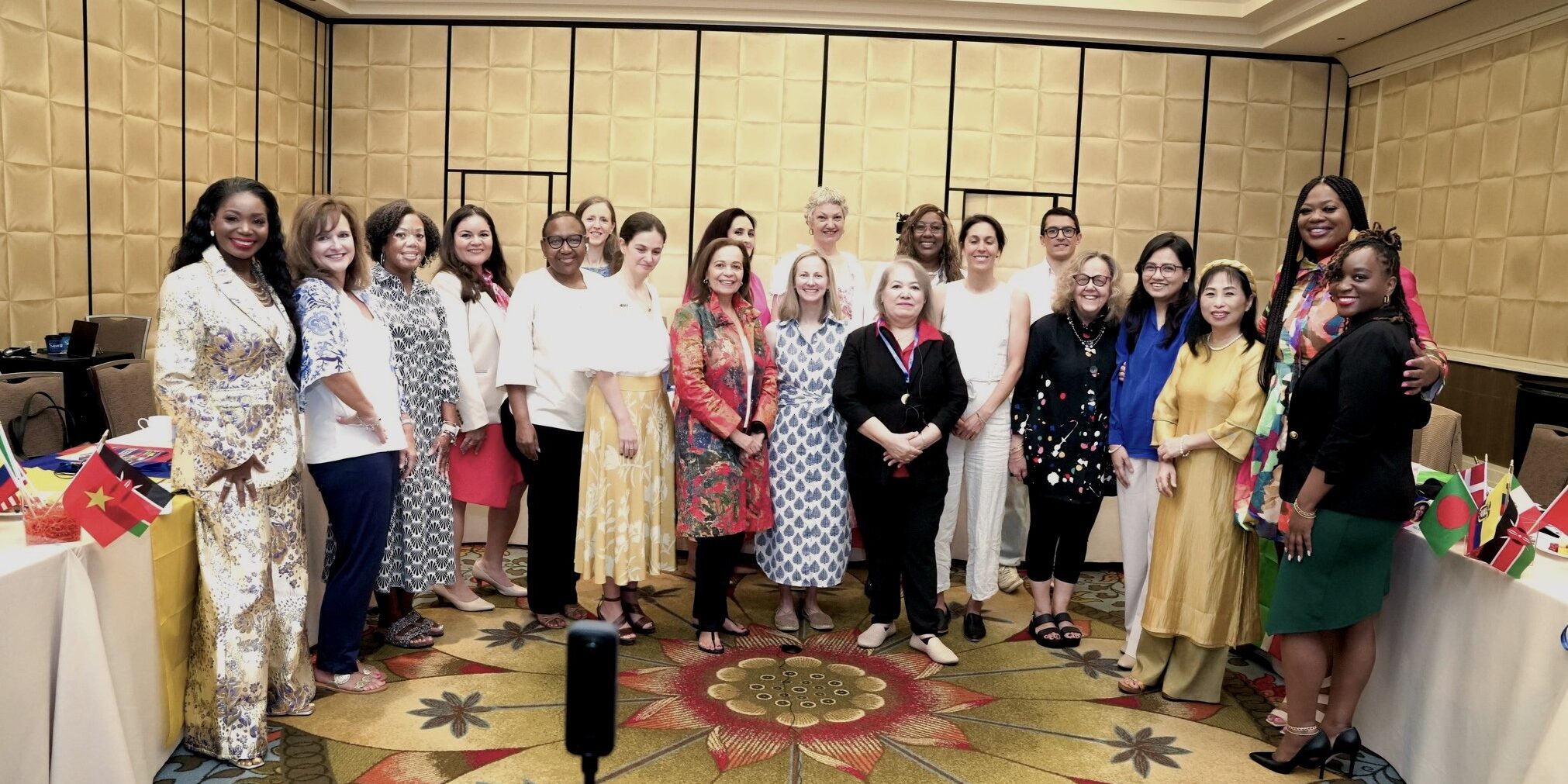Originally published by by Bainum Family Foundation, by Shayna Cook
At the end of July, early childhood leaders from around the world came together in Dallas, Texas, for a two-day gathering as a part of the National Association for Family Child Care (NAFCC) conference. The event titled, the NAFCC Home-Based Family Child Care Global Learning Convening, brought together educators, advocates, and systems leaders to exchange ideas, share promising practices, and build community rooted in a shared purpose.
The convening welcomed participants from across the U.S. and around the world — including many of our local and global partners:
- WeVision EarlyEd Solutions Lab site: Precious Moment Family Child Care (Maryland)
- Early Childhood Program partner: Florida Family Child Care Home Association and National Association for Family Child Care
- Family Philanthropy Global Education Fund (GEF) grantees: iACT (Chad), OneSky (Vietnam), BRAC (Bangladesh), and EDCAN, which is a global network of early childhood stakeholders.
This unique gathering offered an opportunity for our domestic and global early childhood partners to connect in-person. While their work typically occurs in separate geographies and political environments, participants quickly recognized the common threads that run through their efforts to support young children and the early childhood educators who care for and educate them.

Two of our team members — Virginia Gentilcore, Director of Family Philanthropy, and Breanna Byecroft, Senior Manager, Family Philanthropy — reflected that being together in-person allowed participants to experience a “shared purpose, sense of community, and exchange of ideas among leaders deeply engaged in this field in different parts of the world.”
The central focus of the convening was home-based child care. This form of early childhood education reaches millions of children and families across the world. Home-based child care professionals, often women, offer smaller group settings, trust, stability, and connection rooted in the cultural and social fabric of their communities. As Erica Phillips, Executive Director of NAFCC, noted in her written welcome message to the convening participants, “Your leadership has brought you here. You are advancing the field, shaping policy, and lifting up home-based child care in powerful ways.”
Our WeVision EarlyEd Solutions Lab sites, who are demonstrating that the ideal child care system is possible in the United States, shared insights from their on-the-ground work. Tiffany Jones, a home-based early childhood educator and advocate from Maryland, spoke to the challenges U.S. educators face, especially related to regulatory complexity and insufficient funding. She also highlighted how systems must be designed with rather than for early childhood education programs and families.
Global partners, meanwhile, brought lessons from vastly different contexts. OneSky’s responsive caregiving training in Vietnam, iACT’s refugee-led programs in Chad, and EDCAN’s international advocacy demonstrated how systems change can be rooted in relationship-based practice, cultural responsiveness, and locally led solutions around the world. Domestic participants saw clear parallels between the challenges and opportunities faced by home-based providers globally and in the United States
Joan Lombardi, Ph.D., an international early childhood expert, articulated the heart of the convening’s purpose when she shared that “caring for young children unites us across borders” and that spending time with leaders from both the United States and abroad was “a unique and deeply rewarding experience.” Her words captured the spirit of the event, which created space for deep mutual respect, learning, and solidarity.
The convening itself was designed to do more than simply share best practices. The gathering aimed to “lift up lived experience” and “co-create solutions grounded in justice, , and respect for educators at the heart of this work.” Whether it was a family child care provider from Florida or a facilitator representing Chad, every voice was treated as vital to the collective vision.
The convening affirmed that system transformation is not just a policy goal, it is a people-centered movement. Whether through the WeVision EarlyEd Solution Lab sites or through global partnerships, the foundation has a long-term commitment to building systems that reflect the real lives and real strengths of children, families, and early childhood educators. This convening made it clear that supporting home-based providers is not just a strategy. It is essential to building an early childhood system that families and educators want.
As Erica Phillips shared so powerfully in her welcome letter, “Together, we can build a future where every child thrives, every family is supported, and every home-based child care provider is valued.” This convening was a bold step in that direction, and a reminder that when we come together across nations, we can imagine and build systems all children and families need to thrive.





